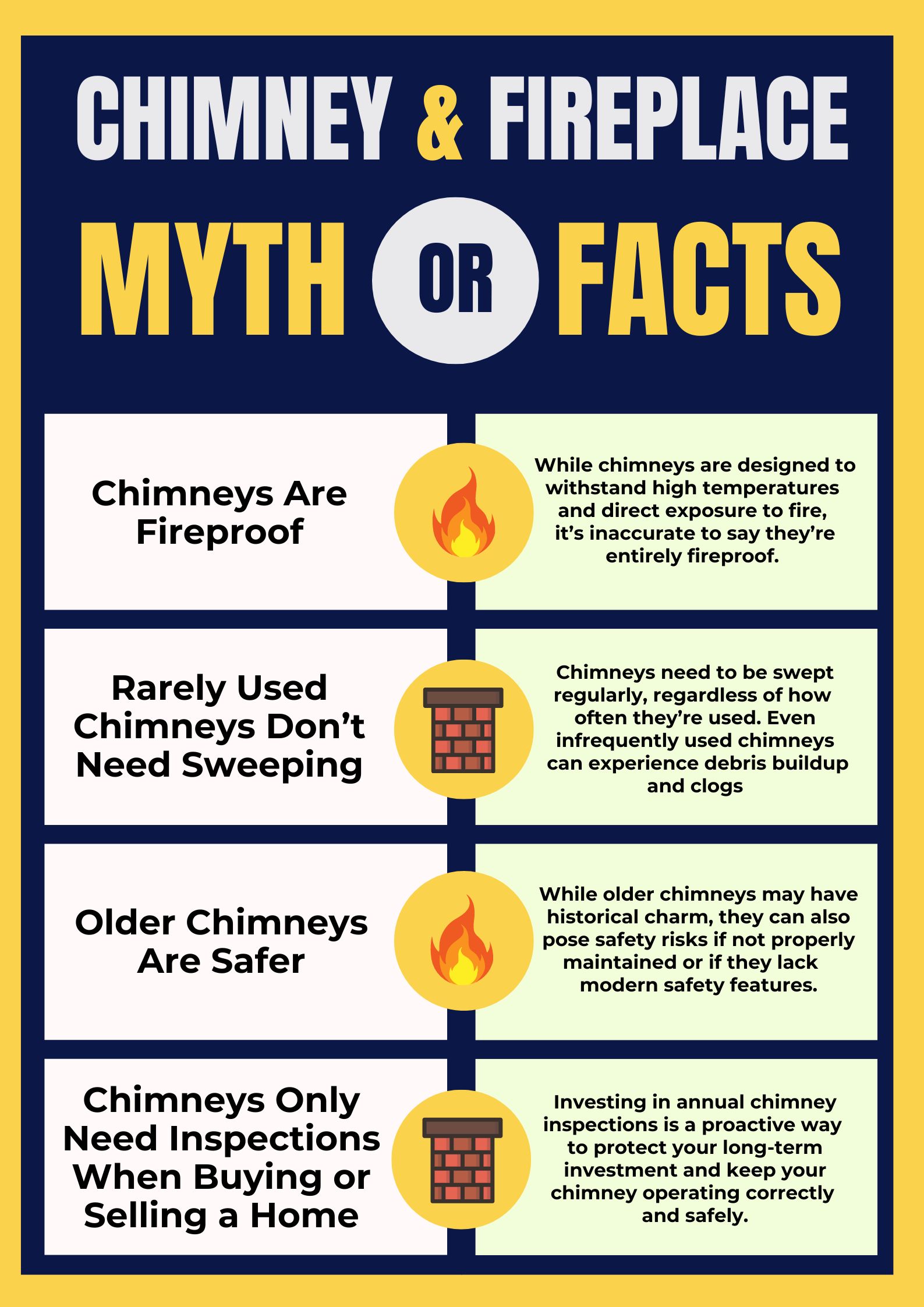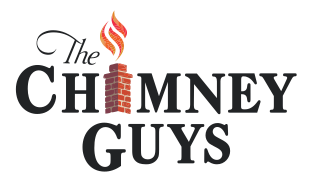You may have heard the old saying that ignorance is bliss…but when it comes to home systems, that really isn’t the case. In fact, the opposite is true: knowledge is power. Knowing more about how your system works and its maintenance needs equips you to care for it better, saving you money in the long term and ensuring it’s reliably there for you when you need it. This is as true for your fireplace and chimney as any other system in your home.
So what myths have you heard about chimneys? We’re heard many, and we’re pulling up a few for you to consider, too – because knowing the truth about chimney care helps keep our clients safer, warmer, and well-informed!

Myth 1: Chimneys Are Fireproof
At first glance, you’re probably thinking…of course chimneys are fireproof! The firebox of your system literally contains fire, so surely the chimney structure is impervious to its effects.
While chimneys are designed to withstand high temperatures and direct exposure to fire, it’s inaccurate to say they’re entirely fireproof. Chimney can become damaged or compromised due to chimney fires, which occur when combustible creosote buildup or debris ignites inside the chimney flue.
Thankfully, routine chimney inspections and sweeping services help keep creosote and debris from building up – and can help identify how to remediate the effects of a chimney fire that’s occurred.
Myth 2: Birds In a Chimney Bring Good Luck
With roots deep in folklore, some believe that seeing birds nesting on your chimney is good luck. But while birds need safe places to nest, your chimney really isn’t one of them – and it’s not good for your chimney or home in general to have them there, either.
Your chimney flue needs to be clear in order to safely vent smoke and combustion gases out of your home. Nesting materials can obstruct ventilation, and any buildup of birdie by-products risks inefficient fires, smoke or gas backing up into your living space, and a potential fire hazard. And while it may seem unkind to deprive the wildlife of the refuge of your chimney, keep in mind that critters can get trapped inside, which just isn’t pleasant for anyone.
The moral of the story? Take steps to have your chimney cleared routinely, and help keep it clear by ensuring the components on your chimney top are in place and in good repair – keeping the local wildlife out.
Myth 3: Chimneys Only Need Sweeping if They’re Used Often
Chimneys need to be swept regularly, regardless of how often they’re used. While a frequently used chimney may need to be swept more often, low levels of use don’t eradicate the need to keep your system clean and clear.
Why? Because even infrequently used chimneys can accumulate debris, nesting materials, or creosote buildup over time. This can obstruct airflow and increase the risk of chimney fires. Annual chimney inspections and routine cleaning by a certified chimney sweep technician are recommended to maintain chimney safety and efficiency.
Myth 4: Older Chimneys Are Safer Than Newer Ones
“They don’t build them like they used to.” We’ve definitely heard that one before, and even joined in that lament a time or two. But while older chimneys may have historical charm, they can also pose safety risks if not properly maintained or updated.
For instance: older chimneys may lack modern safety features such as chimney liners, which protect against heat transfer to combustible materials. Older chimneys are also often less efficient than newer ones. Updating an older chimney can enhance safety and efficiency.
Myth 5: Chimneys Only Need Inspections When Buying or Selling a Home
Property transactions are an important time for inspections – namely level 2 inspections. But inspections are also essential for ongoing maintenance and safety, even when a home isn’t changing hands.
Routine inspections and sweeps help detect issues like leaks, blockages, or cracks before they become vastly more costly to fix or straight up hazardous. Investing in regular chimney inspections is a proactive way to protect your long-term investment in your home and keep your chimney operating correctly and safely.
How often should you book an inspection? Once a year – regardless of usage frequency, fuel type, or anything else.
The Truth: Proper Chimney Care and Maintenance Matter
Scattering myths about chimney care uncovers the importance of taking good care of your chimney. Partnering with our team of helpful experts can help! It takes professional knowledge, tools, and technical skill to accurately assess a chimney’s condition and find the right solutions for keeping it in ideal working condition.
Our goal is to keep our clients safely enjoying their fireplaces with confidence, knowing they’re efficient and well maintained. Contact us today to schedule your inspection or learn about the range of fireplace services we offer to make the cozy haven it should be!

Recent Comments